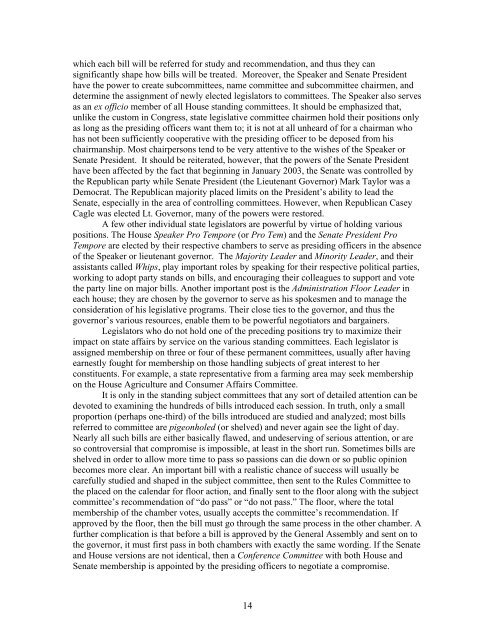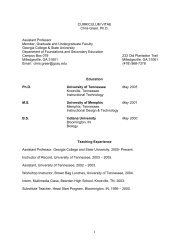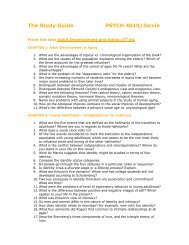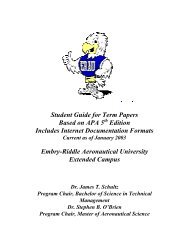THE GOVERNMENT OF GEORGIA
THE GOVERNMENT OF GEORGIA
THE GOVERNMENT OF GEORGIA
You also want an ePaper? Increase the reach of your titles
YUMPU automatically turns print PDFs into web optimized ePapers that Google loves.
which each bill will be referred for study and recommendation, and thus they cansignificantly shape how bills will be treated. Moreover, the Speaker and Senate Presidenthave the power to create subcommittees, name committee and subcommittee chairmen, anddetermine the assignment of newly elected legislators to committees. The Speaker also servesas an ex officio member of all House standing committees. It should be emphasized that,unlike the custom in Congress, state legislative committee chairmen hold their positions onlyas long as the presiding officers want them to; it is not at all unheard of for a chairman whohas not been sufficiently cooperative with the presiding officer to be deposed from hischairmanship. Most chairpersons tend to be very attentive to the wishes of the Speaker orSenate President. It should be reiterated, however, that the powers of the Senate Presidenthave been affected by the fact that beginning in January 2003, the Senate was controlled bythe Republican party while Senate President (the Lieutenant Governor) Mark Taylor was aDemocrat. The Republican majority placed limits on the President’s ability to lead theSenate, especially in the area of controlling committees. However, when Republican CaseyCagle was elected Lt. Governor, many of the powers were restored.A few other individual state legislators are powerful by virtue of holding variouspositions. The House Speaker Pro Tempore (or Pro Tem) and the Senate President ProTempore are elected by their respective chambers to serve as presiding officers in the absenceof the Speaker or lieutenant governor. The Majority Leader and Minority Leader, and theirassistants called Whips, play important roles by speaking for their respective political parties,working to adopt party stands on bills, and encouraging their colleagues to support and votethe party line on major bills. Another important post is the Administration Floor Leader ineach house; they are chosen by the governor to serve as his spokesmen and to manage theconsideration of his legislative programs. Their close ties to the governor, and thus thegovernor’s various resources, enable them to be powerful negotiators and bargainers.Legislators who do not hold one of the preceding positions try to maximize theirimpact on state affairs by service on the various standing committees. Each legislator isassigned membership on three or four of these permanent committees, usually after havingearnestly fought for membership on those handling subjects of great interest to herconstituents. For example, a state representative from a farming area may seek membershipon the House Agriculture and Consumer Affairs Committee.It is only in the standing subject committees that any sort of detailed attention can bedevoted to examining the hundreds of bills introduced each session. In truth, only a smallproportion (perhaps one-third) of the bills introduced are studied and analyzed; most billsreferred to committee are pigeonholed (or shelved) and never again see the light of day.Nearly all such bills are either basically flawed, and undeserving of serious attention, or areso controversial that compromise is impossible, at least in the short run. Sometimes bills areshelved in order to allow more time to pass so passions can die down or so public opinionbecomes more clear. An important bill with a realistic chance of success will usually becarefully studied and shaped in the subject committee, then sent to the Rules Committee tothe placed on the calendar for floor action, and finally sent to the floor along with the subjectcommittee’s recommendation of “do pass” or “do not pass.” The floor, where the totalmembership of the chamber votes, usually accepts the committee’s recommendation. Ifapproved by the floor, then the bill must go through the same process in the other chamber. Afurther complication is that before a bill is approved by the General Assembly and sent on tothe governor, it must first pass in both chambers with exactly the same wording. If the Senateand House versions are not identical, then a Conference Committee with both House andSenate membership is appointed by the presiding officers to negotiate a compromise.14
















